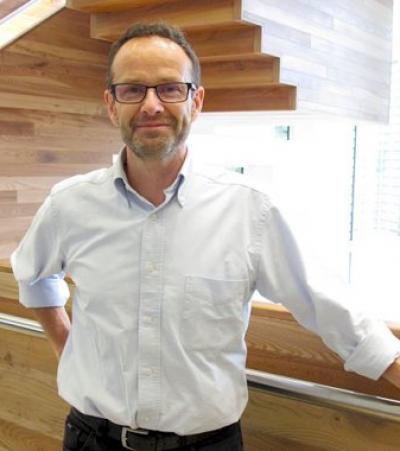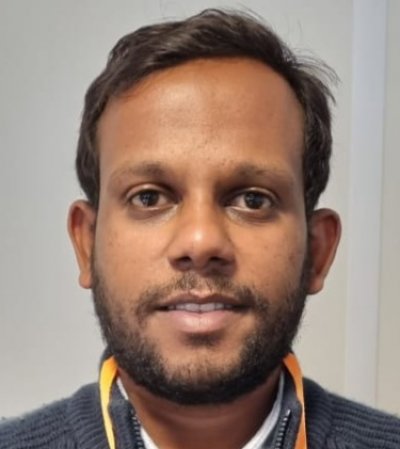
Abdalla Munir holds a B.Sc. in clinical laboratory science from King Saud University (2014) and MSc. In Biochemistry and Molecular Biology (2018).
Currently, he works as clinical data manager at the department of clinical pathology and immunology, Institute of Endemic Diseases (IEND), University of Khartoum. His role involves working on raw clinical trial data (entry, analysis and reporting). Abdalla works closely with the field team reviewing the records and validating the data. Additionally, Abdalla works on non-clinical trials data from previous projects.
Abdalla joined IDDO in April 2022 as WHO/TDR fellow to work on Visceral Leishmaniasis data to understand the importance of host and drug parameters in identifying the areas of unmet needs in treatment of VL.
Hannah joined IDDO in September 2021. As a Data Manager, her role is centred around the management and curation of the diverse clinical and epidemiological data sets which are submitted to IDDO.
Prior to joining IDDO, Hannah has worked as a doctor for the NHS and completed a Master’s in Global Health Science and Epidemiology at the University of Oxford.
Indian authorities sign an MoU for a data and skill-sharing partnership between ICMR and IDDO
The Indian government’s Union Cabinet, chaired by Prime Minister Shri Narendra Modi, has approved a Memorandum of Understanding (MoU) between the Indian Council of Medical Research (ICMR) and the Infectious Diseases Data Observatory (IDDO), based at the University of Oxford.
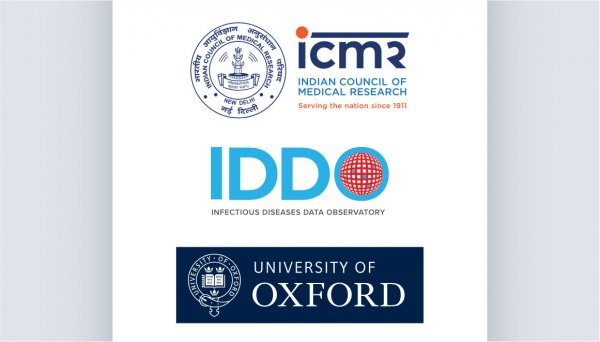
The MoU will build a partnership both in and beyond data and skill-sharing and support capacity development with India’s scientific research community. It will ensure that data collection is compliant with international standards and regulatory requirements. Both ICMR and IDDO will exchange and share ideas on emerging infections and three vector-borne diseases in the elimination phase: malaria, visceral leishmaniasis, and filariasis.
Working together, both parties will support and develop best practices for data management, data documentation, data sharing and the development of equitable governance frameworks. The partnership will also explore opportunities for collaboration on research programmes and develop a three-year work plan on capacity strengthening, an exchange of research fellows, training on data management and statistical analysis.
Professor Philippe Guérin, Director of IDDO, said: “We are delighted to partner with the Indian Council of Medical Research and look forward to sharing expertise and strengthening our collaboration. Recent major public health events have shown just how effective shared knowledge and skills can be, and how crucial it is for the international scientific research community to continue to work together ever more closely. This partnership provides early career researchers with a fantastic opportunity to enhance their skills and improve treatment outcomes for affected communities.”
Find out more about the MoU here.
Sharing expertise with scientific collaborators in India
Last year, the Indian Council for Medical Research (ICMR) National Institute of Malaria Research (NIMR) and IDDO began collaborating on a joint capacity building venture to train young researchers across three infectious diseases.

These are:
-
Malaria with the ICMR-NIMR in New Delhi
-
Visceral leishmaniasis with the ICMR and the Rajendra Memorial Research Institute of Medical Sciences (ICMR-RMRIMS) in Patna
-
Lymphatic filariasis with the ICMR and the Vector Control Research Centre (ICMR-VCRC) in Puducherry
Researchers have been developing their skills in key areas like data collection, storage and management; modelling; clinical trials and public health. Below several of the researchers discuss their experience taking part in the ICMR-NIMR and IDDO collaboration and the new skills they have acquired during the training.
I joined the ICMR-NIMR-IDDO project to utilize my skills and expertise of clinical trials in exploring various infectious disease. The training activities in all the modules were conducted in depth. All the resources like databases, materials, documents were provided effectively and in a timely manner. These training schedules have widened my capabilities some of them being preparation of protocol, designing of case report forms for a clinical trial, scoping and searching various databases, creating appropriate search strategies that can help in future trial designing and planning.
– Dr Beauty Behera, Clinical Research Manager, ICMR-NIMR-IDDO
My motivation behind joining this project was to get trained in applying the huge amount of available data to identify knowledge gaps that will inform future research priorities in malaria. This training is a great learning experience, and it introduced me to different skills related to data in malaria research, clinical trials, and public health.
– Dr Reena Verma, Consultant, ICMR-NIMR-IDDO
Research is a vast field, and it is ever-growing. Joining the ICMR-NIMR-IDDO training suited my need to grow my skills and also provided an opportunity to work with the leading international researchers in the field of Malaria. It has been an amazing experience and the skills that I have acquired during this training will go a long way to help me grow professionally even more, and expand my knowledge horizon.
– Dr Sundus Ahmad, Consultant, ICMR-NIMR-IDDO
Being from the molecular biology background, joining the ICMR-NIMR-IDDO joint project seemed to me as a wonderful opportunity to widen my horizon and explore new avenues. The training was quite thorough and detailed, and I learned the basics of data collection, storage and management which are the pillars for every field of research and will help me to systematically design and execute my research plans.
– Dr Minu Nain, Consultant, ICMR-NIMR-IDDO
My main motivation to join the IDDO-NIMR-ICMR training was to enhance the knowledge and open a new door of research on Infectious diseases like Malaria, visceral leishmaniasis, and lymphatic filariasis. The training modules were comprehensive and included detailed sessions on Systematic Review Meta-Analysis, REDCap and Covidence softwares which would be very useful for my future research plans.
– Dr Azhar Uddin, Consultant, ICMR-VCRC-IDDO
I have recently joined the ICMR-NIMR-IDDO joint project with an aim to learn more about the emerging issues in malaria research, and the approaches that we could adopt to address these issues.
– Dr Pushpender Kumar, Consultant, ICMR-NIMR-IDDO
Being a PhD in Bioinformatics and with six months of working experience in construction, maintenance, analysis, etc. of celiac disease biorepository at AIIMS Delhi, I wanted to further explore new horizons in public and clinical health, and this was my motivation behind joining the ICMR-NIMR-IDDO joint project. During the training, I got an opportunity to learn from the pioneers of the respective fields. Currently, I am learning Geospatial modelling from the IDDO team and I am also engaged with the IDDO informatics team to learn about WWARN Data Manager and WWARN surveyors.
– Mr Apoorv Gupta, Biostatistician/ Data analyst, ICMR-NIMR-IDDO
Applications open for RSTMH 2022 grant programme
Early career researchers are invited to apply for the RSTMH 2022 grant programme to help fund a one-year project on any topic related to tropical medicine and global health.
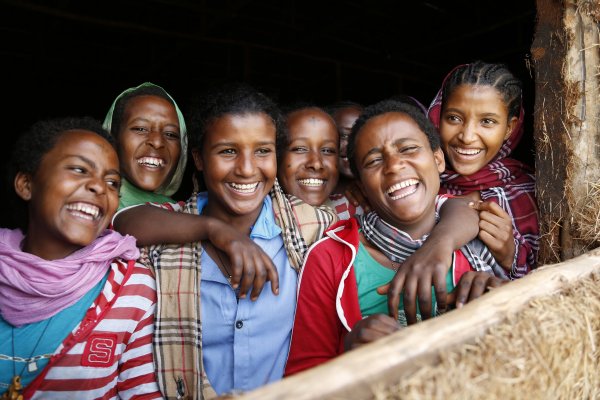
The RSTMH Early Career Grants Programme – the new name for the former RSTMH Small Grants Programme – is now open for applications and the deadline to apply is April 29. The grants scheme funds projects across the research spectrum, including lab-based, clinical, implementation and policy-related research, by up to £5,000.
Applications are invited from early career researchers and global health professionals based anywhere in the world, who have not had research funding in their own name before.
Grant requests can be on any area of tropical medicine or global health. RSTMH’s thematic priorities in its current strategy, plus other areas of health that are less well known are encouraged.
These are:
- Neglected tropical diseases, with a particular focus on their overlap with non-communicable Neglected Tropical Diseases (NTDs), with a particular focus on their overlap with Non-Communicable Diseases and the Sustainable Development Goals
- Malaria, with a particular focus on drug resistance
- One Health and wider planetary health. The consideration of human health alongside animal health and the environment, in the context of social, economic and political factors
- Topical issues including, but not limited to, emerging diseases
- Drug resistant infections
- Snakebite
- Mycetoma and other skin NTDs
- Co-morbidity and NCDs
- Coronavirus
- Climate change
The maximum RSTMH Early Career Grant award is £5,000 (including any taxes on relevant purchases) and for up to one year in duration.
RSTMH will be running a webinar for anyone who wants to find out more about the Early Career Grant application process on 24 February at 13:30 - 14:30 (GMT). Register your place here.
Estimating the proportion of relapse following treatment of Visceral Leishmaniasis: Meta-analysis of published studies
A meta-analysis aimed at estimating the proportion of relapse during the study follow-up period following treatment of Visceral Leishmaniasis (VL)
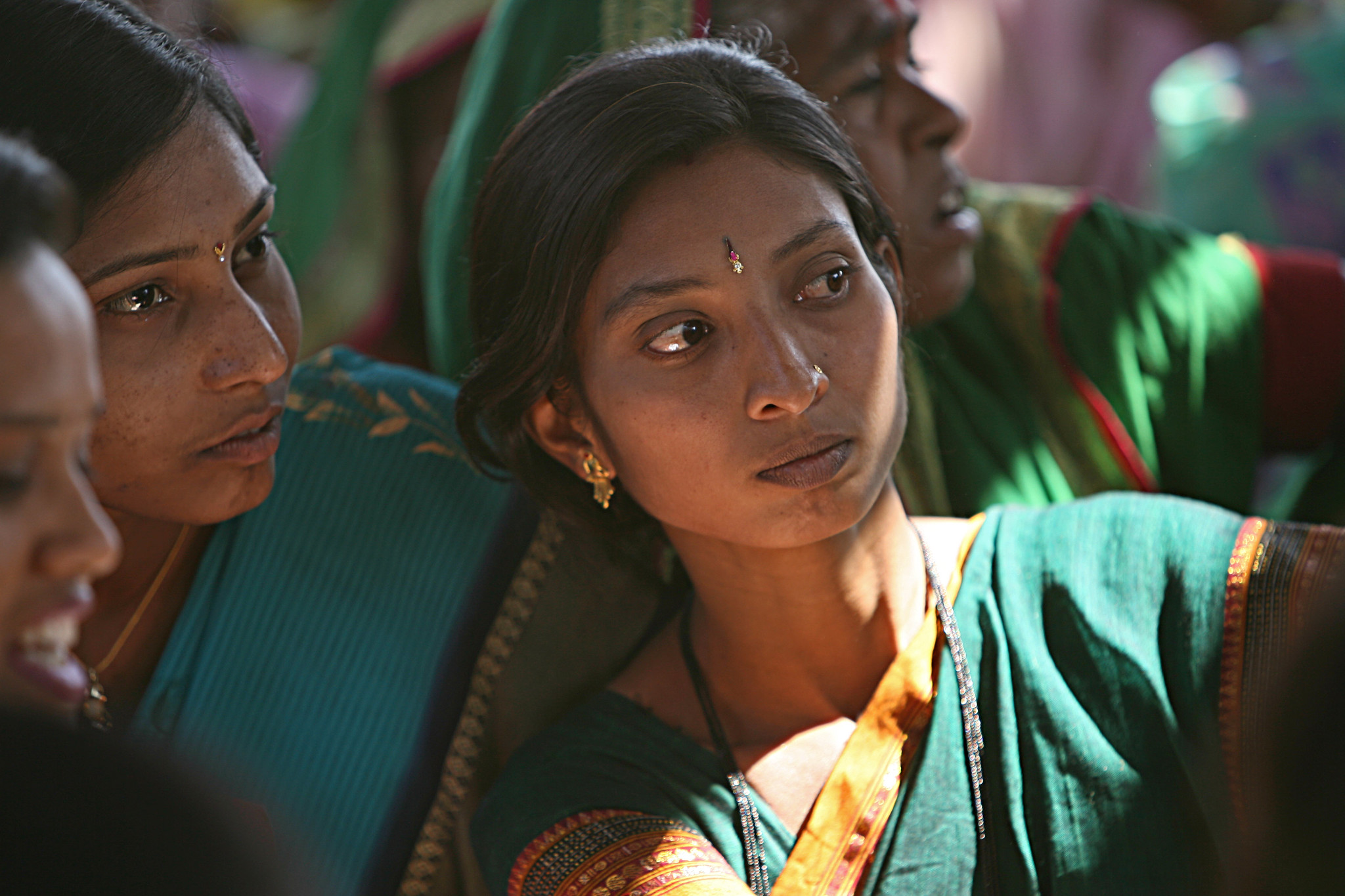
Analysis is ongoing with expected completion of the research activity by March-2022. Publication is expected by mid-2022 and dissemination of results will follow.
Visceral Leishmaniasis (VL) is a vector-borne disease transmitted by sandflies and caused by protozoan parasites of the genus Leishmania. An estimated 50,000 to 90,000 new cases of VL occur worldwide annually. The disease is fatal if untreated. The ultimate endpoint of parasitological efficacy is defined as the absence of relapse within the follow-up period after achieving initial cure upon the completion of treatment. Most clinical efficacy studies adopt a 6-month follow-up post-treatment to capture relapsing cases. Relapses after 6 months have been reported in observational cohorts leading to suggestion that a longer follow-up period may be warranted [1].
This project aims to quantify the proportion of relapses observed in VL patients at 6 and 12 months of follow-up after treatment with an antileishmanial drug. The specific objectives are:
- To estimate the proportion of relapses observed in VL clinical trials stratified by drug regimen, geographical region, follow-up duration, and mg/kg drug dosage administered
- To estimate the proportion of relapses captured at 6-months and at 12-months in studies with a follow-up duration longer than 6 months
This research will utilise data from the studies indexed in the IDDO VL living systematic review of all published clinical studies.
The following inclusion criteria is adopted:
- Studies with at least 6 months of post-treatment follow-up period
- Studies that aimed to capture relapse during the post-treatment follow-up period
The following studies will be excluded
- Studies with unclear information regarding the follow-up duration
- Studies not reporting the number of patients who were initially cured
- Studies that enrolled patients with HIV co-infection
Data on the following aspects of the included studies were extracted: study design, location, publication year, age range of the participants, total number of participants enrolled including the number of patients achieving initial cure, relapse. When reported, the number of the patients with these outcomes were extracted for each of the following time-interval: within 6 months of post-treatment follow-up, between 6-12 months or after 1 year of follow-up. The proportion of patients with relapse will be combined using random effects meta-analysis after applying logit transformation. The pooled estimates will be presented together with the associated 95% confidence intervals (95% CIs) and sub-group meta-analyses will be undertaken to explore potential sources of heterogeneity.
For further information on this research activity, please contact Rutuja Chhajed (vl@iddo.org) or Prabin Dahal (prabin.dahal@iddo.org) or Sauman Singh (sauman.singh@iddo.org).
1. Burza S, Sinha PK, Mahajan R, Lima MA, Mitra G, Verma N, et al. Risk Factors for Visceral Leishmaniasis Relapse in Immunocompetent Patients following Treatment with 20 mg/kg Liposomal Amphotericin B (Ambisome) in Bihar, India. PLoS Negl. Trop. Dis. 2014;8:44.

Sean joined IDDO as a Data Manager in October 2021. He works to transform and curate data sets submitted to IDDO and to preserve the completeness and accuracy of the data stored within the IDDO repository.
Prior to joining IDDO he worked at Oxford University’s Big Data Institute as a Data Analyst for the Global Resistance to Antimicrobials (GRAM) project.
Sean holds a DPhil in Zoology from Oxford University for which he created optimisation models for the management of insecticide resistance in crop feeding insects.
Our work
IDDO is working with the visceral leishmaniasis (VL) research community to collate global data and deliver robust science to address knowledge gaps and save lives with better treatment. The platform aims to facilitate pooled analysis of individual patient data (IPD) to answer the research questions of key interest to the VL research community.

A living systematic review
IDDO has found that data exists on more than 35,000 patients enrolled in over 150 trials in the past 20 years. This is captured in the VL Surveyor, an interactive tool that maps VL clinical trials and provides a clear visualisation of the research landscape.
This scattered but rich resource informs knowledge gaps in treatment optimisation that could influence future research. However, usually only summary statistics are available from publications, with results often not reported in a standardised and statistically comparable manner across different trials. This makes comparative analysis of efficacy between drugs, regimens and regions almost impossible.
A harmonised database of VL clinical trials
IDDO has assembled a harmonised database of VL clinical trials containing over 14,000 IPD, representing nearly one-third of the published sample size. Study groups investigating key research questions using the combined IPD have been launched in collaboration with data contributors and research experts.
Case report form for uncomplicated VL
In collaboration with the VL research community and partners including DNDi, IDDO has developed a freely-available case report form annotated to CDISC standards for uncomplicated VL. The case report form provides a flexible standard for use by VL researchers in clinical trial research.
Study groups
IDDO facilitates collaborative Study Groups to undertake individual patient data meta-analyses to answer specific research questions about visceral leishmaniasis (VL) treatments. Working together, and combining data from different regions and populations, is improving our understanding of the disease, and will advance research and subsequent drug development.
Systematic reviews
Our global collaborations have produced systematic reviews investigating critical areas of concern surrounding VL treatment and clinical trial research.

Caitlin joined IDDO in August 2021 and works as the Programme Manager for the Visceral Leishmaniasis and COVID-19 platforms, managing delivery of these programmes, their scientific research activities and collaborations. Additionally, as part of the IDDO Programme Management team, Caitlin supports wider strategic and operational development for the IDDO portfolio of research themes on neglected poverty-related diseases.
Caitlin has a degree in Biological Sciences from the University of Edinburgh, with an honours specialisation in Infectious Diseases. She went on to complete a PhD at the University of Virginia in microbiology, followed by postdoctoral scientist positions at MRC Unit The Gambia at the London School of Hygiene and Tropical Medicine and at the University of Oxford, researching a range of topics including malnutrition, enteric infections, and malaria.
Open call to join new studies launched by the VL research community
Two new Study Groups, a collaboration between IDDO and the global visceral leishmaniasis (VL) research community, have been formed to answer specific research questions about treatments. They will undertake individual patient data meta-analyses using datasets from multiple studies, across sub-populations of interest, to help explore sources of between-study heterogeneity in therapeutic responses. Colleagues from across the VL research community are invited to join.

One Group will explore Anaemia among patients with VL and haematological dynamics post treatment and aim to characterise the haematological parameters at baseline and during the initial treatment and in the ensuing follow-up period using individual participant data hosted at IDDO VL data platform.
The other will look at Host, parasite, and drug determinants of therapeutic responses. There is a marked regional heterogeneity in therapeutic response against antileishmanial therapies in VL. Single dose Liposomal Amphotericin B remains the current first line therapy in the Indian subcontinent due to the emergence and evolution of drug resistant parasites against pentavalent antinomy (PA). However, PA in combination with Paromomycin has demonstrated a high efficacy in Africa and continues to be used as a first line therapy. Such heterogeneity in therapeutic responses has been thought to arise due to regional differences in parasite sensitivity/susceptibility. The importance of host and drug parameters as a determinant of observed differences in clinical response demand further investigations.
Both Study Groups will be co-led by Dr Prabin Dahal and Dr Sauman Singh. Colleagues from the VL research community interested in joining the Study Groups should email vl@iddo.org for more information.
Prabin Dahal, one of the study co-leads remarked: “Individual participant data (IPD) meta-analysis is increasingly recognised as a gold-standard method for evidence synthesis. It allows a more thorough and flexible analysis to be undertaken that would otherwise not be possible through published aggregate data. For example, the number of relapses in any single trials are few. Pooling IPD from several studies would allow us to explore the host, parasite and drug determinants of relapses which can be used to inform optimal case management. These study groups are therefore a unique opportunity for the global VL community to answer some of the long standing questions related to disease and the drugs.“
VL, also known as kala-azar, is transmitted to humans through the bites from infected female phlebotomine sand flies. If left untreated, it is fatal in 95% of cases. Globally, it is estimated there are up to 22,000 new cases of VL each year which occur in Brazil, Ethiopia, India, Kenya, Somalia, South Sudan and Sudan.
IDDO is a scientifically independent, multi-disciplinary coalition of the global infectious disease community. It is unique among data-sharing initiatives in taking many different types of data and standardising these to create larger-scale datasets to enable global research collaborations to pose new scientific questions.



